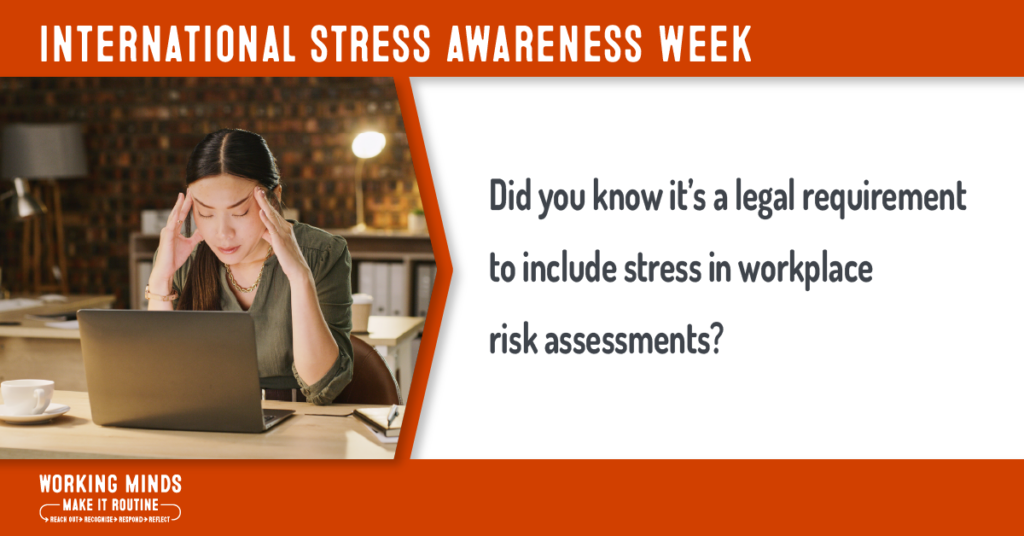To mark Stress Awareness Day (6 November), the UK’s Health and Safety Executive (HSE) is calling on businesses to step up and fulfil their legal obligation to address work-related stress.
The agency’s reminder also coincides with International Stress Awareness Week (4-8 November 2024), urging employers to protect employee mental health and create a supportive work environment. Recent data from the HSE shows that work-related stress, depression, and anxiety are causing significant disruption. On average, employees affected by these conditions took nearly a month’s worth of working days off in 2022/23 – adding up to 19.6 days per employee and affecting around 875,000 workers. This issue isn’t just a personal cost; it’s a business crisis, too. In total, 17.1 million working days were lost in 2022/23 due to stress-related issues, highlighting a pressing need for preventive measures.
“The numbers speak for themselves – work-related stress is an issue that needs urgent attention. The cost to businesses and individuals alike is substantial, but employers have the power to make a difference,” stated Kayleigh Roberts, HSE’s Work-Related Stress and Mental Health Policy Lead. “By recognising stress as a serious workplace issue, and taking action, companies can fulfil their legal duty while supporting mental health in the workplace.”
TACKLING WORK-RELATED STRESS
The HSE’s Working Minds campaign offers a roadmap for businesses seeking practical solutions. Stress prevention, as Roberts emphasises, is not just about compliance. it’s about good business sense and a healthier, more productive workforce. “Prevention is better than cure,” added Roberts. She also stressed that understanding and addressing risks can help employers avoid costly setbacks down the line.
Employers are encouraged to start with basic actions, as outlined below.
- Risk Assessments. Conduct regular assessments for work-related stress, and take steps based on the findings.
- Preventative Measures. Implement strategies to reduce stress, from workload management to fostering positive work relationships.
- Written Documentation. Companies with five or more employees need to legally provide a written record of risk assessments. Smaller companies may not need to document, but it’s a helpful practice.
The HSE has outlined six main stress triggers – demands, control, support, relationships, role, and change. It is urging employers to consider individual factors like experience, age, and disability, which can influence an employee’s ability to handle these stressors.

TIPS TO MANAGE WORKPLACE STRESS
The Working Minds campaign suggests a clear path for managing workplace stress through the “5 Rs”:
- Reach Out: Start conversations and create a supportive environment.
- Recognize: Identify stressors early.
- Respond: Act on identified risks.
- Reflect: Evaluate your actions and their effectiveness.
- Routine: Make stress management part of your regular practices.
Andrew Berrie, Head of Corporate Partnerships at mental health charity Mind, supports HSE’s initiative, emphasising that a mentally healthy workplace is no longer optional. “Unchecked pressures lead to strain, impacting mental health and productivity. Employers can help mitigate stress by fostering open dialogue around mental health,” Berrie shared.
ADDRESSING WORKPLACE STRESS
For companies looking for guidance, HSE’s Working Minds campaign offers a range of free tools. These include risk assessment templates and online training. It also offers Talking Toolkit to help structure meaningful conversations about stress in the workplace.
“The statistics paint a concerning picture. But resources like Working Minds give employers practical steps to improve mental health and prevent stress-related issues,” noted Jenny Scott, Head of Communications at NEBOSH.
Addressing workplace stress isn’t just the right thing to do, it’s legally mandated and smart for business. By taking proactive steps to create a mentally healthy workplace, employers can reduce absenteeism, improve morale, and foster a culture of support and resilience. Stress Awareness Week is a reminder to employers that addressing stress at work isn’t just a duty. It’s an opportunity to create a healthier, more productive workplace. By recognising the signs, taking preventive steps, and fostering open conversations, companies can make a tangible impact on mental health at work.
To read more about HSE’s Working Minds campaign click here






































